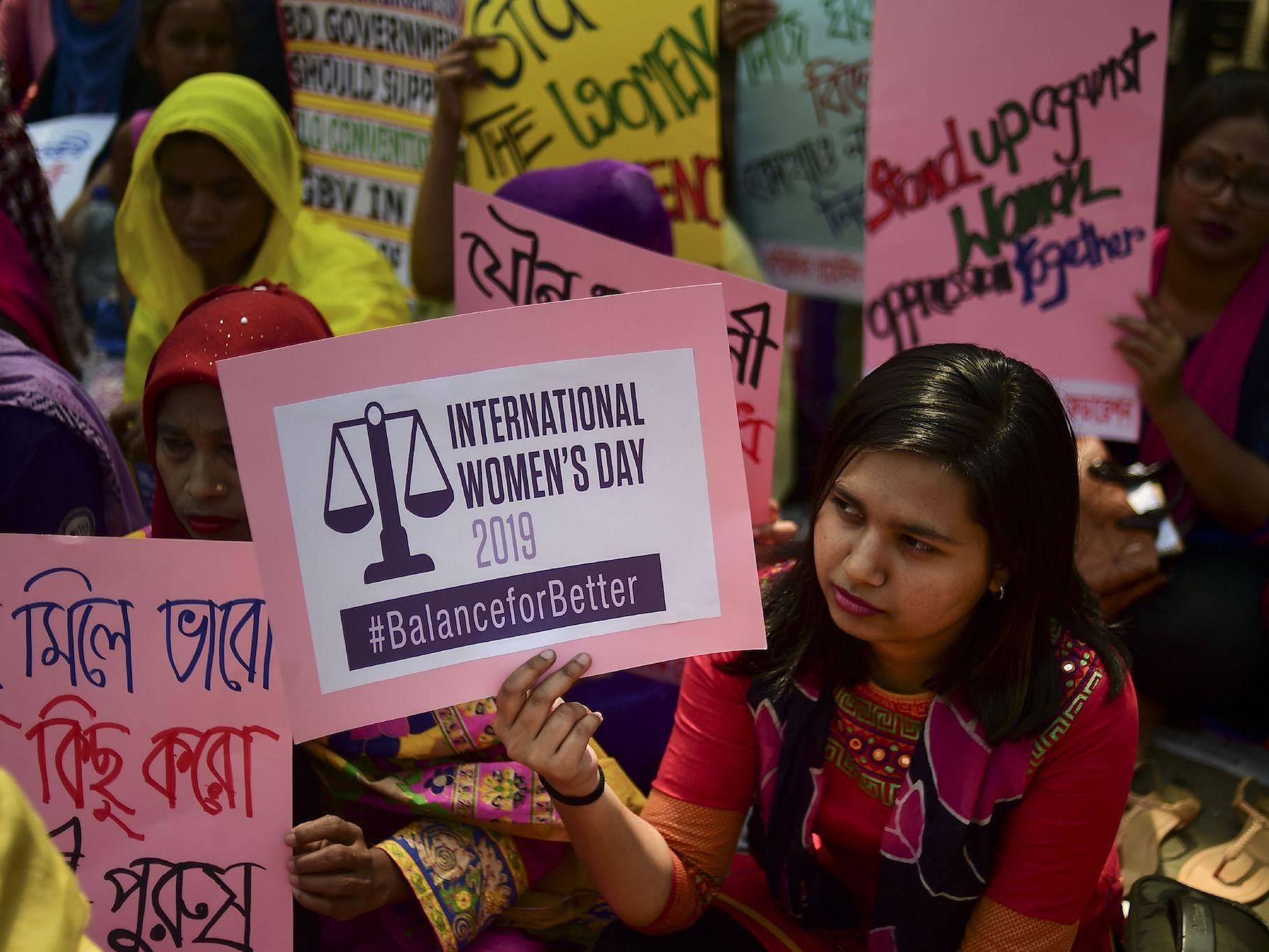Bangladeshi women no longer required to say whether they are virgins on marriage certificate
‘It’s a ruling that gives us the belief that we can fight and create more changes for women in the future’

Your support helps us to tell the story
From reproductive rights to climate change to Big Tech, The Independent is on the ground when the story is developing. Whether it's investigating the financials of Elon Musk's pro-Trump PAC or producing our latest documentary, 'The A Word', which shines a light on the American women fighting for reproductive rights, we know how important it is to parse out the facts from the messaging.
At such a critical moment in US history, we need reporters on the ground. Your donation allows us to keep sending journalists to speak to both sides of the story.
The Independent is trusted by Americans across the entire political spectrum. And unlike many other quality news outlets, we choose not to lock Americans out of our reporting and analysis with paywalls. We believe quality journalism should be available to everyone, paid for by those who can afford it.
Your support makes all the difference.Bangladesh’s high court has ruled that women will no longer be required to declare if they are virgins on marriage certificates in a victory for equal rights campaigners.
In the Muslim-majority country, a bride had to state if they were divorced, a widow or “kumari”, a Bengali word meaning “virgin”, on their marriage deed, or “Kabinnama”.
Activists said the form was “humiliating” for women, particularly as the certificate required no such statement on the part of the groom. They first petitioned the court asking for it to be changed in 2014.
“We filed a writ petition because asking whether someone’s a virgin or not is against the person’s right to privacy,” said Ainun Nahar Siddiqua, one of two lawyers involved in the case.
A high court bench including Justice Naima Haider ruled that the government had failed to explain why the wording of the certificates should not be declared illegal.
The judges said “kumari” should be replaced with the word “obibahita”, which unambiguously means “unmarried”.
They also ruled that men should be required to make the same declaration – whether they are “unmarried”, “widower” or “divorced”.
Ms Siddiqua, of the Bangladesh Legal Aid and Services Trust, called the decision “a landmark verdict”.
“It’s a ruling that gives us the belief that we can fight and create more changes for women in the future,” she told the Thomson Reuters Foundation.
Deputy attorney general Amit Talukder said the government would prepare to make the changes to the 1974 Bangladesh Muslim Marriage and Divorce Act when the court publishes its full verdict, which is likely to be in October.
Bangladesh is the world’s third largest Muslim-majority nation, with a population of 163 million. It has a rich history of women’s rights activism, and has been led since 1991 by two female prime ministers.
Mohammad Ali Akbar Sarker, a Muslim marriage registrar from Dhaka, said he would await orders from the Ministry of Law and Justice about the changes in the form.
“I have conducted many marriages in Dhaka and I have often been asked why men have the liberty to not disclose their status but women don’t. I always told them this wasn’t in my hands,” he said.
“I guess I won’t be asked that question anymore.”
Join our commenting forum
Join thought-provoking conversations, follow other Independent readers and see their replies
Comments